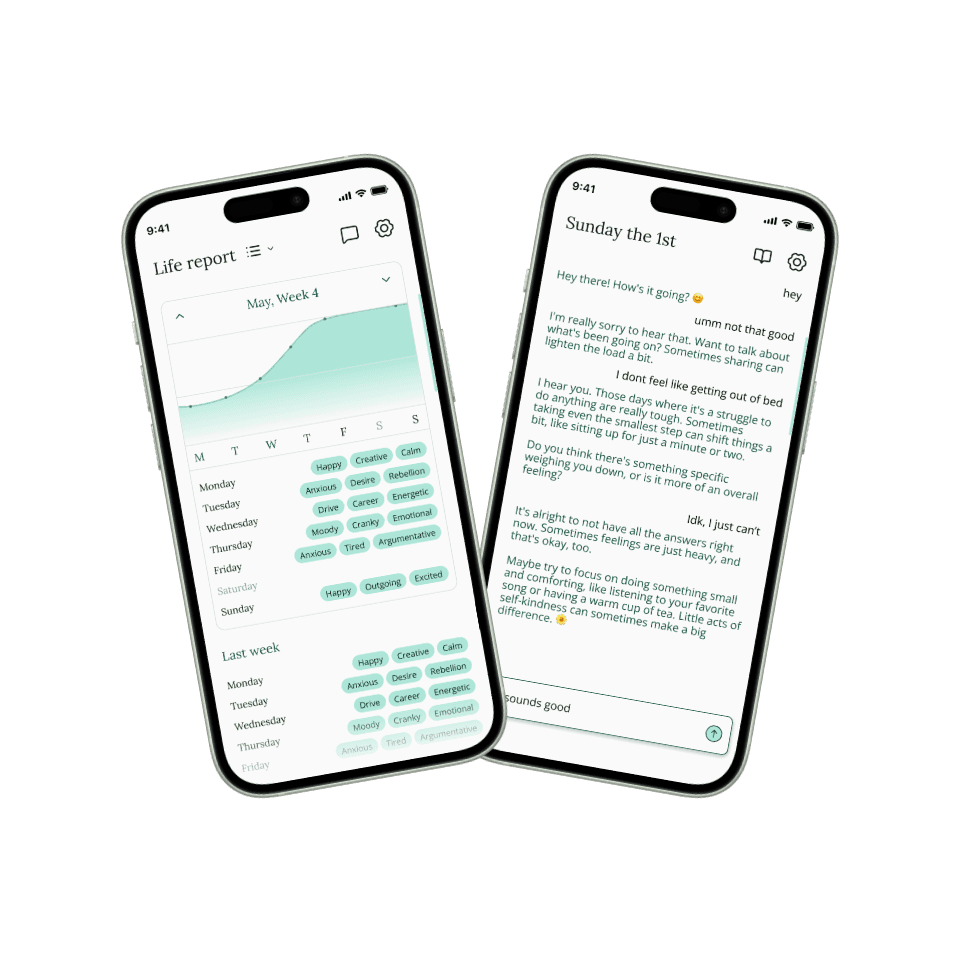
How To Track Progress in Therapy Without Effort
How To Track Progress in Therapy Without Effort
Jul 25, 2024
Jul 25, 2024
Have you ever left a therapy session feeling like you're running in circles? Or maybe you've wondered if all those hours of introspection are actually leading somewhere? You're not alone. But here's the thing: tracking your journey can be incredibly empowering. Let's explore some ways to keep tabs on your progress throughout therapy.
Why Track Your Progress?
Before we dive into the 'how', let's talk about the 'why'. Tracking progress in therapy isn't about ticking boxes or reaching some predetermined destination. It's about:
Recognizing small victories
Identifying patterns and triggers
Staying motivated during tough times
Methods to Track Your Progress
1. The Good Old Journal
Journaling doesn't have to mean writing a novel every night. Try these quick and easy methods:
Mood Tracker: A simple color-coded calendar can help you visualize mood patterns.
Therapy Takeaways: After each session, write down one key insight or tool you want to remember.
2. Scale Your Feelings
Numbering your emotions might sound odd, but it can be surprisingly helpful. Try rating things like:
Overall mood (1-10)
Anxiety levels
Quality of sleep
3. Set Micro-Goals
Break down your larger therapy goals into tiny, achievable steps. For example, if social anxiety is a challenge, your micro-goals might look like:
Week 1: Make eye contact with the barista
Week 2: Ask a coworker about their weekend
Celebrate each of these victories – they're all signs of progress!
4. Symptom Tracking Apps
There are tons of apps designed to help track mental health symptoms. Find one that resonates with you and use it consistently. Many offer insights and progress reports that can be eye-opening. Verba is one of them.
5. The Feedback Loop
Don't be shy about asking your therapist for their perspective on your progress. They might notice shifts that you've overlooked. Some questions to consider:
"Have you noticed any changes in how I approach problems?"
"What areas do you think I've made the most progress in?"
Remember: Progress Isn't Linear
Here's a crucial thing to keep in mind: progress in therapy often looks like a squiggly line, not a straight arrow. Some weeks you'll feel on top of the world, others might feel like you're back at square one. This is normal!
What matters is the overall trend. When you look back over months, not days or weeks, you'll likely see how far you've come.
Making It Work for You
The key to tracking progress is finding methods that feel genuine and manageable for you. If a technique feels like a chore, it's okay to ditch it and try something else. The goal is to enhance your therapy experience, not add stress to it.
Remember, you're not just a passive recipient in therapy – you're an active participant in your own growth story. By keeping track of your progress, you're gathering data on the most fascinating subject of all: you.
So, are you ready to start charting your path? Pick one method that speaks to you and give it a try this week. Your future self will thank you for leaving these breadcrumbs along your journey of growth and healing.
Have you ever left a therapy session feeling like you're running in circles? Or maybe you've wondered if all those hours of introspection are actually leading somewhere? You're not alone. But here's the thing: tracking your journey can be incredibly empowering. Let's explore some ways to keep tabs on your progress throughout therapy.
Why Track Your Progress?
Before we dive into the 'how', let's talk about the 'why'. Tracking progress in therapy isn't about ticking boxes or reaching some predetermined destination. It's about:
Recognizing small victories
Identifying patterns and triggers
Staying motivated during tough times
Methods to Track Your Progress
1. The Good Old Journal
Journaling doesn't have to mean writing a novel every night. Try these quick and easy methods:
Mood Tracker: A simple color-coded calendar can help you visualize mood patterns.
Therapy Takeaways: After each session, write down one key insight or tool you want to remember.
2. Scale Your Feelings
Numbering your emotions might sound odd, but it can be surprisingly helpful. Try rating things like:
Overall mood (1-10)
Anxiety levels
Quality of sleep
3. Set Micro-Goals
Break down your larger therapy goals into tiny, achievable steps. For example, if social anxiety is a challenge, your micro-goals might look like:
Week 1: Make eye contact with the barista
Week 2: Ask a coworker about their weekend
Celebrate each of these victories – they're all signs of progress!
4. Symptom Tracking Apps
There are tons of apps designed to help track mental health symptoms. Find one that resonates with you and use it consistently. Many offer insights and progress reports that can be eye-opening. Verba is one of them.
5. The Feedback Loop
Don't be shy about asking your therapist for their perspective on your progress. They might notice shifts that you've overlooked. Some questions to consider:
"Have you noticed any changes in how I approach problems?"
"What areas do you think I've made the most progress in?"
Remember: Progress Isn't Linear
Here's a crucial thing to keep in mind: progress in therapy often looks like a squiggly line, not a straight arrow. Some weeks you'll feel on top of the world, others might feel like you're back at square one. This is normal!
What matters is the overall trend. When you look back over months, not days or weeks, you'll likely see how far you've come.
Making It Work for You
The key to tracking progress is finding methods that feel genuine and manageable for you. If a technique feels like a chore, it's okay to ditch it and try something else. The goal is to enhance your therapy experience, not add stress to it.
Remember, you're not just a passive recipient in therapy – you're an active participant in your own growth story. By keeping track of your progress, you're gathering data on the most fascinating subject of all: you.
So, are you ready to start charting your path? Pick one method that speaks to you and give it a try this week. Your future self will thank you for leaving these breadcrumbs along your journey of growth and healing.
View more insightful blog articles
Today's tune



Track your mental health and get support between sessions with Verba
Learn more

Track your mental health and get support between sessions with Verba
Learn more

Track your mental health and get support between sessions with Verba
Learn more

Advait Naik
Advait is the founder of Verba and is working at the intersection of psychology, design and technology to create Verba, an app that helps us be more self aware through clarity and communicate our life in therapy